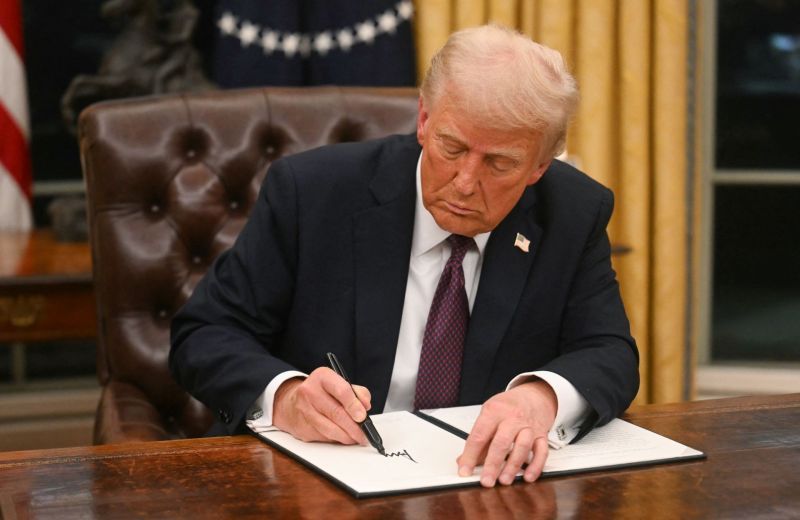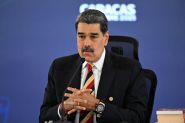- Home
- Middle East
- Washington Plans to Impose Reciprocal Tariffs on Trade Partners

U.S. President Donald Trump, signing a presidential executive order ©Jim Watson / AFP
U.S. President Donald Trump announced on Thursday a proposal for reciprocal tariffs targeting countries that impose duties on U.S. imports, according to Reuters. This measure, which could take effect in the coming weeks, is part of his administration's protectionist policy aimed at strengthening economic and national security.
"Today is a great day: reciprocal tariffs," Trump said on his social media before the announcement. Although these tariffs are not being applied immediately, they could be implemented soon as his economic team evaluates bilateral trade relations and the differences in tariff rates.
Trade Surpluses
These new tariffs, which will primarily target countries with the largest trade surpluses and high tariff rates, aim to negotiate a reduction in trade barriers. Washington is particularly focused on China, Japan, South Korea, and the European Union.
The goal is to equalize tariff rates between the U.S. and its trade partners. A White House official stated that the Trump administration would prioritize the most "flagrant" cases for action.
The initiative also seeks to address non-tariff barriers, such as subsidies, restrictive regulations, value-added taxes, and exchange rate policies that hinder U.S. products' access to foreign markets. It could also open negotiations with some countries to reduce these obstacles.
The announcement also appears aimed at triggering trade talks. "The president is fully prepared to lower tariffs if other countries do the same," the official said. However, the official emphasized that high tariffs are not the only issue, and that a tailored approach for each country could be adopted, without excluding a uniform global tariff.
India in the Crosshairs
Indian Prime Minister Narendra Modi, who is expected in Washington, leads a government that imposes the highest tariffs on U.S. exports among the major trade partners of the United States. This situation could be addressed during discussions between the two leaders.
Read more



Comments